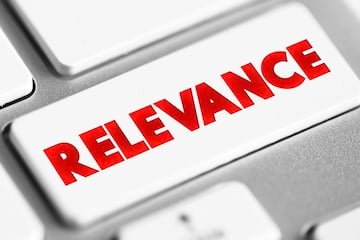For years, businesses have published blogs to attract operation, any traffic. For example, online devices could publish an article unrelated appliances if it attracts visitors on the web.
The irrelevant bike best in Circa 2025 is likely to hurt the visibility of organic search and confused large language models.
Here is a way of searching and algorithms AI heals the content of content.
Organic search
Google once assigned signals record at page level. The site could respond well and manage traffic, even if it was irrelevant to the web.
Around 2021, however, Google began to emphasize the “domain level” signals.
Prominent starting experience of traffic losses. Take Hubspot, to explore. In April 2022, Hubspot ranked in terms of search questions unrelated to its main marketing platform, such as the “personality test” and “real estate license”. Then she lost about 80% of her organic traffic, for Semrush.
Hubspot subsequently deleted all unrelated pages, which resulted in much less traffic ass Higher Overall, he returned, probably to attract qualified prospects, not mother visitors.
According to Semrush, Hubspot maintained the highest rating of queries, such as “conversion optimization” and “brand strategy”.
At the beginning of 2024, Google announced an update to the reputation of the site that Google defined as “Third -party pages are published with small or no first supervision or interconnection), where the purpose is to manipulate first -party signals.”
Reputation abuse was another signal that irrelevant content could damage the overall page rating. Google even reportedly deindexed the whole parts of different business publications.
Large language models
We all learn how to optimize the mention and quotes in Chatgpt, Claude, Gemini, AI reports and others. The irrelevant publishing content is likely to confuse these models.
LLMS focuses on the context and expertise of the site to determine where it is mentioned or cites. The irrelevant content can dilute the context and confuse AI algorithms, explosions, the chance of the site to appear in the driver’s responses.
In short, irrelevant content, which does not deal with a niche and value, can damage your online visibility in AI and Google.
If you are not in a publication company, consider removing irrelevant content. Unfortunately, the “elevator” is vague. The content may not describe its product directly. This could solve the problems of your target group and still be useful and relevant.
Here is a table for managing irrelevant content.
| Action | Happy | Tips |
|---|---|---|
| Delete the content and let the links go to 404 page. | Any content that becomes irrelevant for business. | Remove all internal links to this site; Confirm with a screaming frog or a similar search engine. |
| Leave the contents published but redirect incoming links; Block the search engines in the Robots.txt file. | Old instructions or instructions for using completed products or outdated functions. Old product users will still use this content. | Block all search engines, include AI search engines. Block only the archive folder or equivalent, not the entire site. |
| Noindex URL. | Any irrelevant happy. Some pages preliminary because they violated URL addresses or created new folders. In most cases, however, this is the weakest choice, because many indexing is not supported by many AI platforms and does not prevent any robots to crawl old URL addresses, which would appear unnecessarily server load and hit page speed. | Without indexing, it blocks irrelevant content from Google rating (and is penalized from abuse of the reputation of the site), but I do not recommend it in most boxes. |

